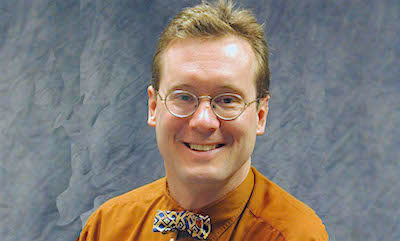Professor’s Book on Life with HIV Updated.
 A lot has changed in the decades since Allen Gifford, professor of health law, policy, and management, coauthored the first edition of Living a Healthy Life with HIV in the 1990s.
A lot has changed in the decades since Allen Gifford, professor of health law, policy, and management, coauthored the first edition of Living a Healthy Life with HIV in the 1990s.
“HIV was, sadly, a much more pervasively fatal disease,” he recalls. “A lot of what we were doing was palliative care.”
The fourth edition of Living a Healthy Life with HIV, published this January, reflects how far HIV treatments—and patients—have come.
Now, people who are HIV positive are increasingly living to old age, and dealing with a range of other conditions. New treatments and preventative methods also mean other parts of life, like sex or having healthy children, are possible. The population is also much more diverse, reflecting different cultural backgrounds, community networks, socio-economic statuses, and education levels.
This latest edition thus aims to help people who are HIV positive live long, healthy, fulfilling lives through chronic illness self-management.
This approach to HIV arose around the time Gifford and his co-authors wrote the first edition of the book. Gifford, then a postdoctoral fellow working with HIV in communities of gay men in San Francisco, joined forces with colleagues who were developing chronic illness self-management, teaching patients with conditions like diabetes or arthritis “to negotiate both the healthcare system and their day-to-day lives with chronic illness,” he explains.
“In many ways it’s actually not a book that is primarily disease-focused,” Gifford adds. “It has elements that address issues that are germane to people with HIV, but many of the elements are intentionally targeted to a person who is living in a community with chronic disease.” In other words, he explains, managing HIV long-term involves social support, fitting medication into a busy schedule, and elements like exercise and healthy eating that are beneficial regardless of HIV status.
Through each updated edition, Gifford says he is most proud of how Living a Healthy Life with HIV speaks directly to the affected population: “This is really my most important, consistent effort for doing things that are targeted directly to end-users.
“Although it’s not a work of traditional scientific scholarship, it is very much a community-based health promotion activity that speaks to my excitement about being part of the world of public health.”